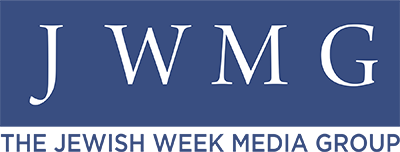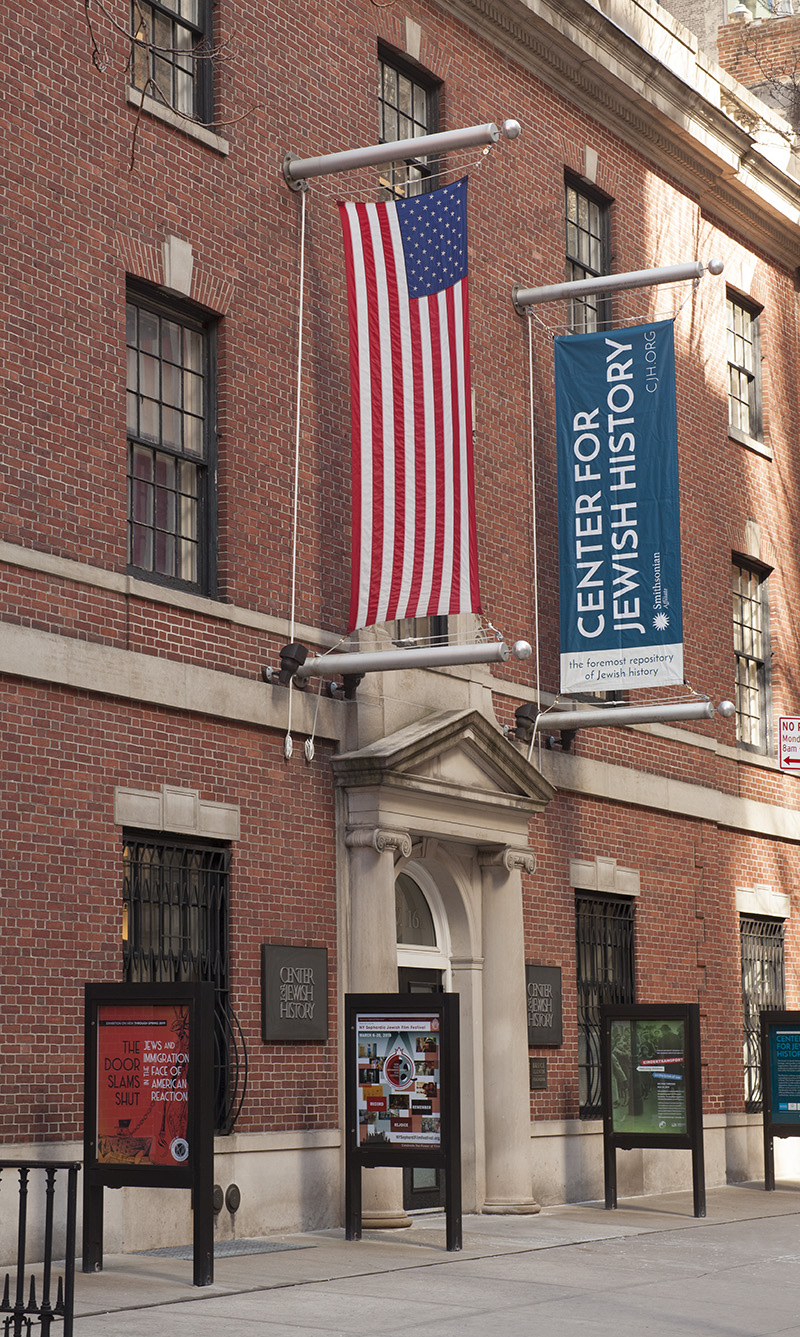lecture
Ashkenazi Jews and Chinese Food – Live on Zoom
For many Ashkenazi Jews in the United States, Christmastime sparks memories of egg rolls and General Tso's chicken. How did the affinity for Chinese food amongst many Jews begin? Trace this delicious history from the turn-of-the-century Lower East Side to today’s take-out lo mein with Andrew Coe, author of Chop Suey: A Cultural History of Chinese Food in the United States.
About the Speaker:
Andrew Coe is a food writer and culinary historian who has written for Gastronomica, Saveur, the New York Times, and the Wall Street Journal. He is the author of Chop Suey: A Cultural History of Chinese Food in the United States and coauthor, with Jane Ziegelman, of A Square Meal: A Culinary History of the Great Depression.
Ticket Info: Tickets: Free; register at https://www.yivo.org/Chinese-Food for a Zoom link
Presented by:

lecture
book club
LBI Book Club, Vol. VI: The Ground Under My Feet – Live on Zoom
Born in Vienna in the 1920s, Eva Kollisch was sent as a teenager on a 1938 Kindertransport to England. She then was able to come to the United States, where the family was reunited. The author writes about these experiences, as well as growing up in the world of left-wing politics and culture in New York, finding her way as a writer, literary critic, teacher pacifist, and feminist. Unswervingly, she examines the traces that persecution and rejection have left on both her and those around her. Written as a series of essays, The Ground Under My Feet is a meditation on being a survivor. Grace Paley described the book as “…beautifully written. It has more history in it than most historians give us.”
About the Speaker:
Eva Kollisch is the daughter of writer Margaret Kollisch and the architect Otto Kollisch (1881-1952). She spent her school years in Baden bei Wien, Austria. In July 1939, she fled on a Kindertransport to the UK and in 1940 and she emigrated with her two brothers Peter and Stephen to the U.S., where her parents had found refuge in November 1939.
In New York, from 1941 to 1946, she was a member of the Trotskyist Workers Party, and married author Stanley Plastrik, one of the editors of the magazine “Dissent.” In 1950, she married her second husband, the painter Gert Berliner (born 1924) who, with others such as the painter David Gross, collectively ran the cafe Rienzi, 107 MacDougal Street in Greenwich Village. The cafe was a gathering spot for New York bohemians and patrons included James Baldwin, Jack Kerouac, and Bob Dylan.
Eva Kollisch studied German literature and science at Brooklyn College and later at Columbia University. Then she led, together with Gerda Lerner and Joan Kelly, a course for women's studies at Sarah Lawrence College. At this college, she eventually became a professor and taught English, German, and Comparative Women’s Literature.
In 1986 Eva Kollisch met her current partner, the American poet Naomi Replansky. In 2016, both women won the Clara Lemlich Social Activist Award. Eva and Naomi continue to live in New York City today.
Ticket Info: Free; register at lbi.org/events/lbi-book-club-vol-vi/ for a Zoom link
Presented by:

book club
cooking show
Sephardic Culinary History with Chef Hélène Jawhara Piñer – Live on Zoom
Episode Five: Fish Stew of the Conversos and Matza
Sephardi Culinary History is a new show that combines chef and scholar Hélène Jawhara-Piñer’s fascination with food studies and flair for creating delicious cuisine. Join along as she cooks Sephardic history!
ASF Broome & Allen Fellow Hélène Jawhara-Piñer earned her Ph.D in History, Medieval History, and the History of Food from the University of Tours, France.
Ticket Info: Free; register at us02web.zoom.us for a Zoom link
Presented by:
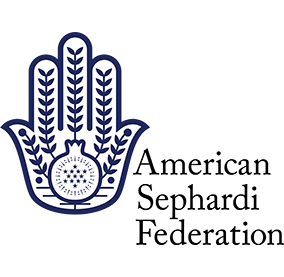
cooking show
virtual tour
Writing Between Tongues: An Exploration of Hebrew and Arabic Calligraphy – Live on Zoom
In this interactive session and virtual gallery tour, we will dive into the rich visual worlds of Arabic and Hebrew calligraphy. Through historical, spiritual, linguistic and artistic lenses, we will discover the parallels between both languages. Educator, community organizer, and artist Ruben Shimonov will take us on an exploratory journey of his multilingual calligraphy and the ways he has used his art to enrich Muslim-Jewish interfaith communities.
We will end the session with a live calligraphy demonstration.
Ticket Info: $10; register at us02web.zoom.us to receive a Zoom link
Presented by:

virtual tour
panel discussion
LIVE FROM THE ARCHIVES: AJ Congress and The Civil Rights Era– Live on Zoom
One of our largest collections is from the American Jewish Congress; an organization that tackles questions of American national significance, and whose leaders, staff, and members work for "full equality in a free society for all Americans." Throughout the Civil Rights Movement representatives from AJ Congress frequently partnered with religious and social justice leaders to push for equality and advocate for positive change. Join us as AJHS Director of Collections & Engagement Melanie Meyers gives us a behind-the-scenes look at the painstaking work that goes into processing an archive of this size – from lifting the lid off the first box to creating the finding aid. Historian Dr. Lila Corwin Berman will highlight the historical significance of the collection and its importance to researchers, and Dr. Ilana Kaufman, Executive Director of the Jews of Color Initiative, will shed light on how to frame this collection in our contemporary moment for students.
Ticket Info: Free; register at for a link to the Zoom program
Presented by:

panel discussion
book talk
Loss & Legacy: The Half-Century Quest to Reclaim a Birthright Stolen by the Nazis – Live on Zoom
By 1929 Helene and Samuel Gronner reach economic success and social prominence in the German town of Ilmenau. But when Nazi ideology grips the community, neighbors begin to shun Jewish-owned businesses like theirs. After near daily antisemitic encounters in school, they resolve to send Jochen, their teen-aged younger son, to Palestine. It's not until the war ends that he discovers that his parents perished in the Holocaust.
In his new memoir, Loss & Legacy, Sam A. Gronner traces his father's life-long pursuit to reclaim the birthright stolen by the Nazis. Readers follow the Israel-born author's narrative as he reconstructs the long arc of his father's life, culminating in his 2010 death as the naturalized American citizen, John Gronner. The author belatedly recognizes his father as a survivor of the Holocaust, steadfast in his determination to recoup his inheritance and restore the reputation of the family that the Nazis sought to eradicate.
Sam A. Gronner will be discussing his book, its revelations, and its implications for contemporary readers with Joseph Berger, veteran New York Times journalist and author of Displaced Persons and The Pious Ones.
Event sponsored with a generous grant to LBI from Este and Sam Sylvetsky.
Ticket Info: Free; register at https://www.lbi.org/events/loss-legacy/ for a Zoom link
Presented by:

book talk
conference
Shared History Project: 1,700 Years of Jewish Life in German-Speaking Lands
Attendance via video conference is free with advance registration. The conference languages will be German and English with simultaneous translation. Visit https://www.lbi.org/events/shared-history-conference/ for the conference schedule and details.
Ticket Info: Free; register at https://www.lbi.org/events/shared-history-conference/ to receive a Zoom link
Presented by:

conference
book talk
New Works Wednesdays – Jewish Autonomy in a Slave Society: Suriname in the Atlantic World, 1651-1825 – Live on Zoom
The ninth and final episode in our series exploring new research. Aviva Ben-Ur discusses her new book Jewish Autonomy in a Slave Society: Suriname in the Atlantic World, 1651-1825.
Jewish Autonomy in a Slave Society explores the political and social history of the Jews of Suri-name, a Dutch colony on the South American mainland just north of Brazil. Suriname was home to the most privileged Jewish community in the Americas where Jews, most of Iberian origin, enjoyed religious liberty, were judged by their own tribunal, could enter any trade, owned plantations and slaves, and even had a say in colonial governance.
Aviva Ben-Ur is Professor in Judaic and Near Eastern Studies at the University of Massachusetts, Amherst. She is author of Sephardic Jews in America: A Diasporic History.
Ticket Info: $5; register at us02web.zoom.us for a Zoom link
Presented by:

book talk
digital show and tell
Sound Archive Show and Tell – Live on Facebook and YouTube
Join YIVO Sound Archivist, Lorin Sklamberg for a show and tell of YIVO’s Sound Archives, which houses over 15,000 recordings. See 78 rpm and LP discs, open-reel and cassette tapes, piano rolls, and compact discs, and more from the collections. Find out how the art of sound recording evolved and discover the breadth of YIVO’s holdings.
Ticket Info: Free; register at https://yivo.org/Sound-SAT to receive a reminder email
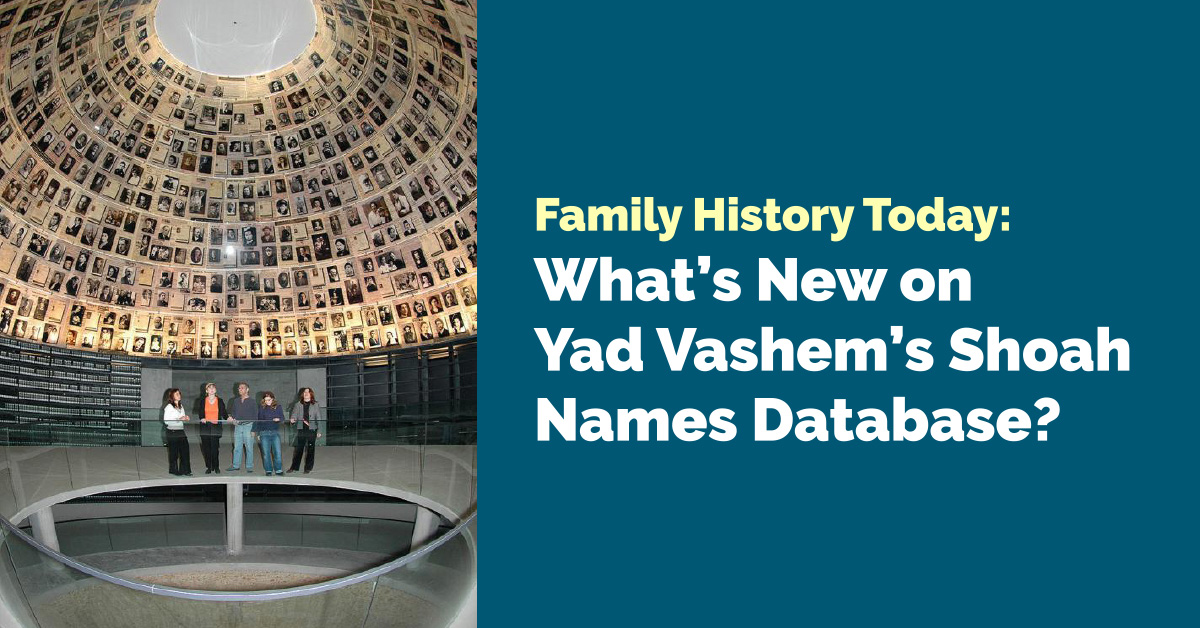

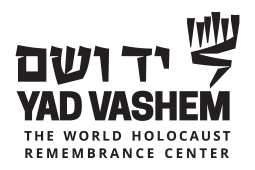
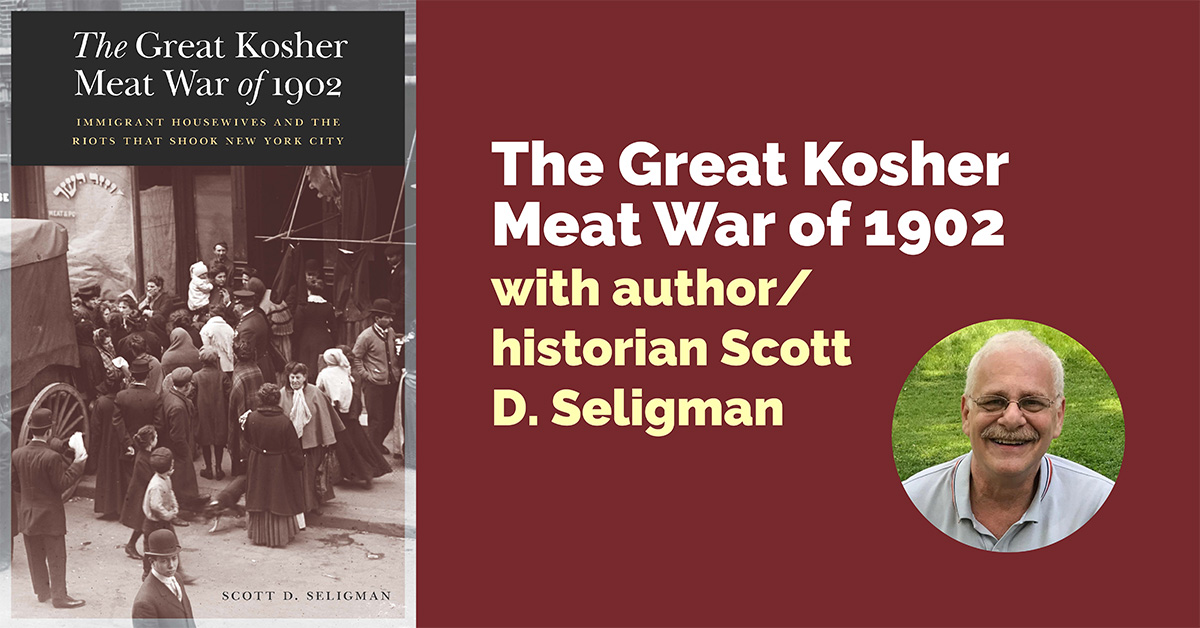
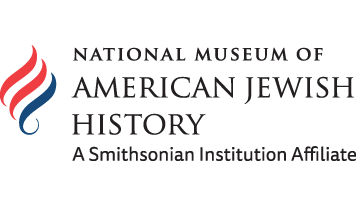
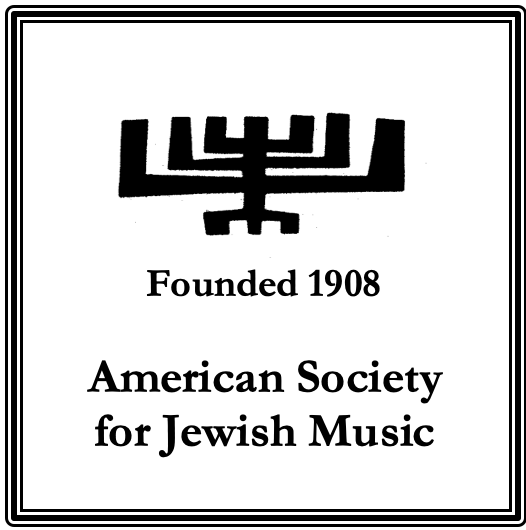
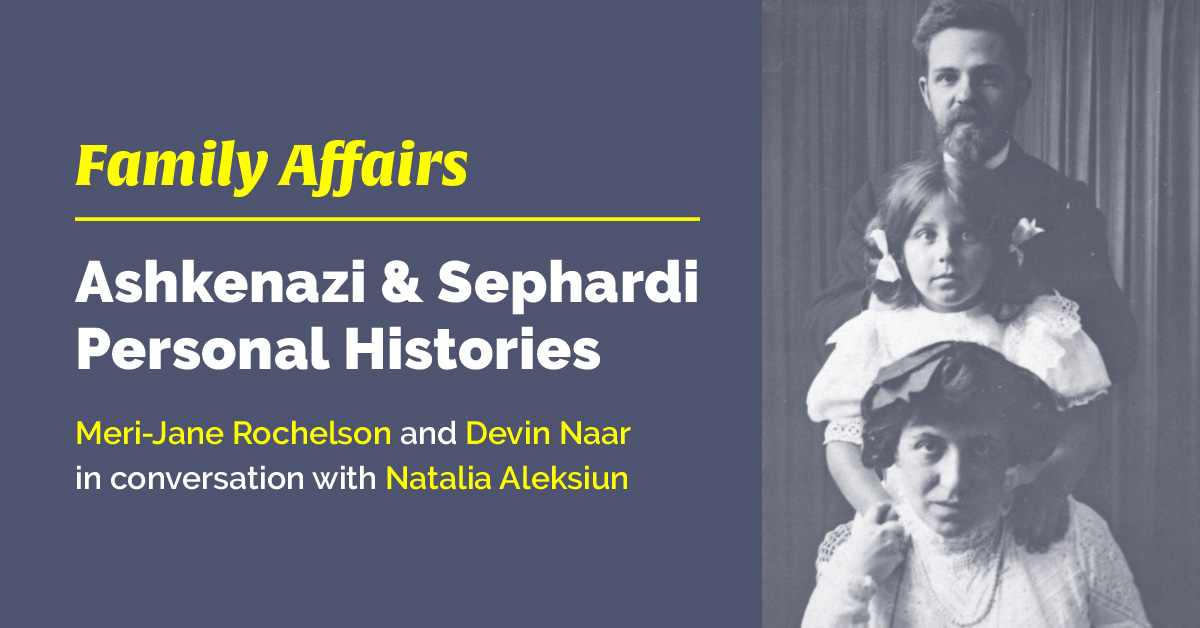
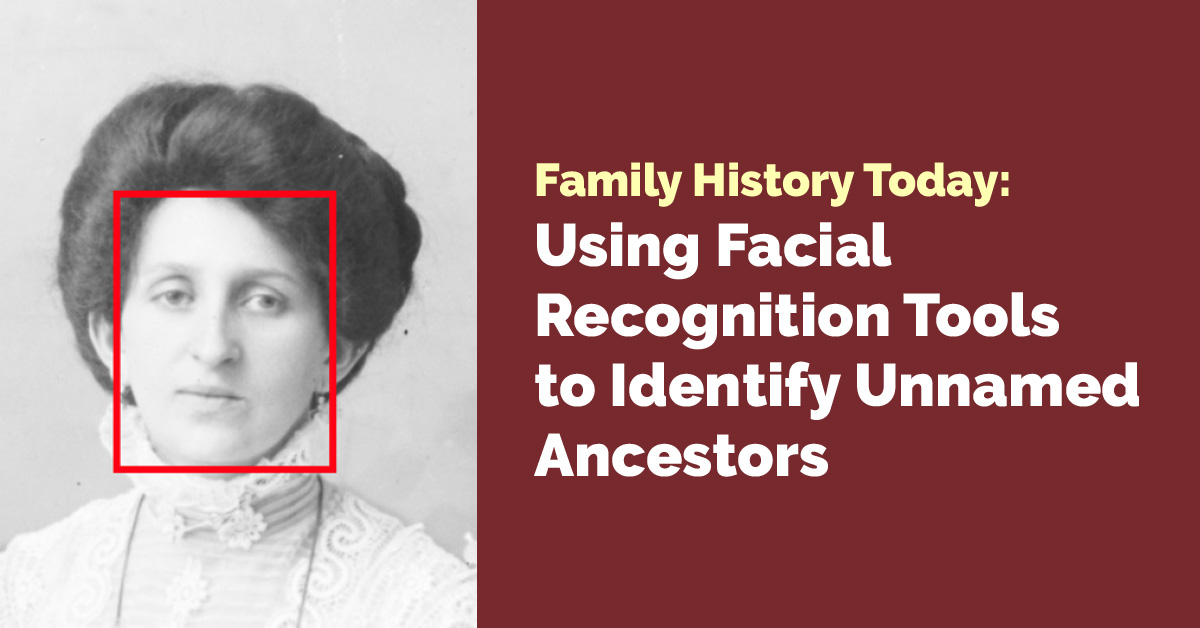
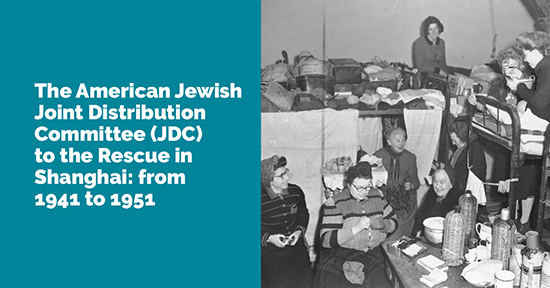
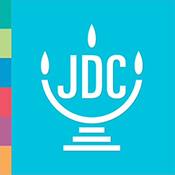
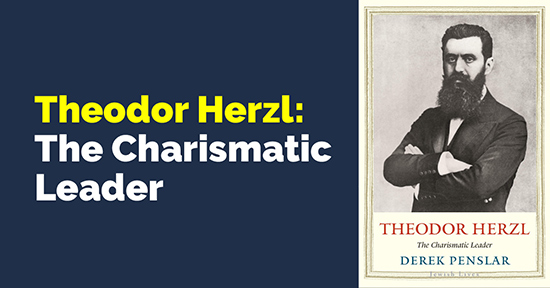
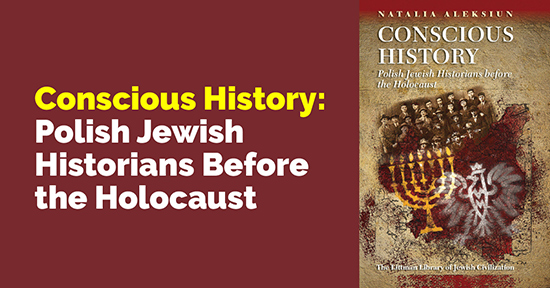
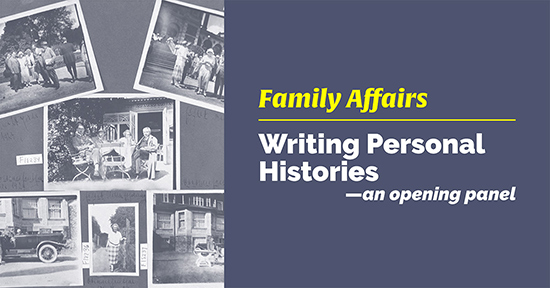
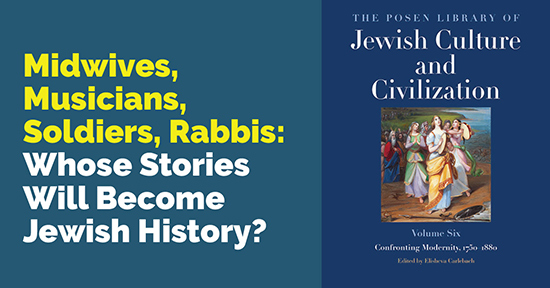
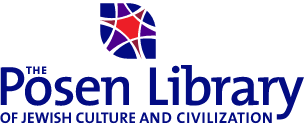
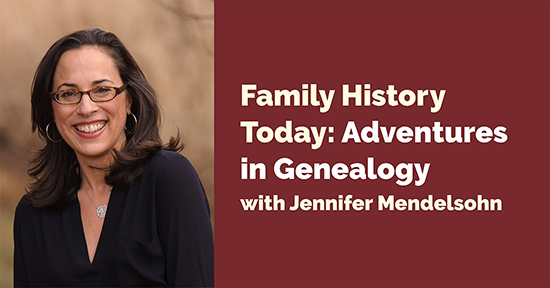
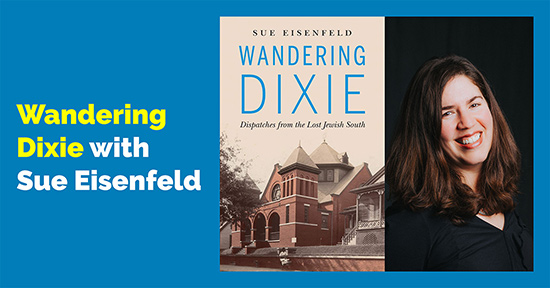
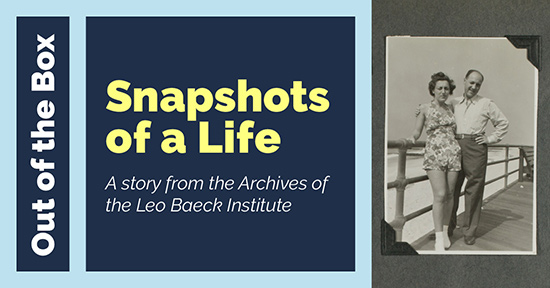

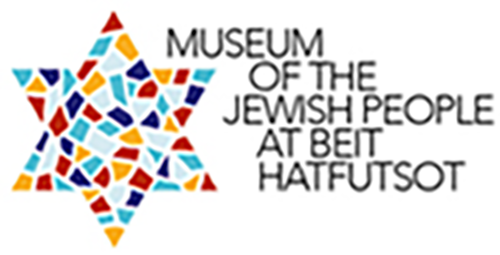

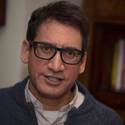 Tony Michels teaches American Jewish history at the University of Wisconsin-Madison, where he also serves as director of the Mosse/Weinstein Center for Jewish Studies. He is author of A Fire in Their Hearts: Jewish Socialists in New York, editor of Jewish Radicals: A Documentary History, and co-editor of The Cambridge History of Judaism. Volume Eight: The Modern World, 1815-2000.
Tony Michels teaches American Jewish history at the University of Wisconsin-Madison, where he also serves as director of the Mosse/Weinstein Center for Jewish Studies. He is author of A Fire in Their Hearts: Jewish Socialists in New York, editor of Jewish Radicals: A Documentary History, and co-editor of The Cambridge History of Judaism. Volume Eight: The Modern World, 1815-2000.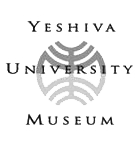

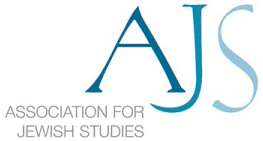
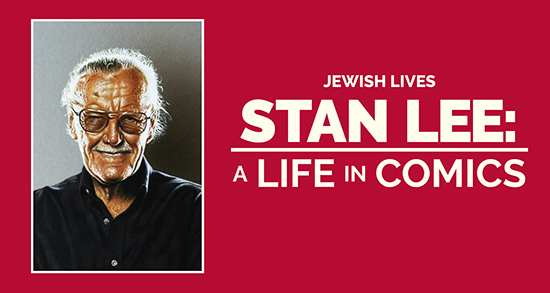
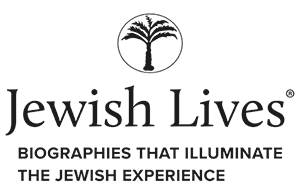

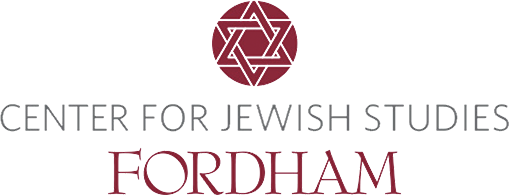
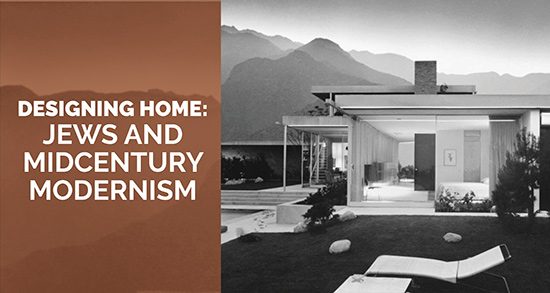
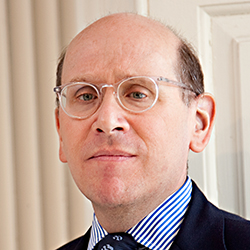 Donald Albrecht is an independent curator who has organized exhibitions for the Getty Center, Library of Congress, Museum of the City of New York, and the Cooper Hewitt, Smithsonian Design Museum, among others. He served as curator of the exhibition Designing Home: Jews and Midcentury Modernism at the Contemporary Jewish Museum in San Francisco in 2014.
Donald Albrecht is an independent curator who has organized exhibitions for the Getty Center, Library of Congress, Museum of the City of New York, and the Cooper Hewitt, Smithsonian Design Museum, among others. He served as curator of the exhibition Designing Home: Jews and Midcentury Modernism at the Contemporary Jewish Museum in San Francisco in 2014.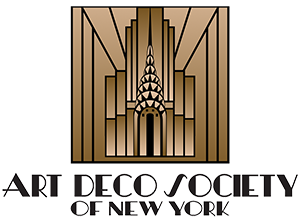


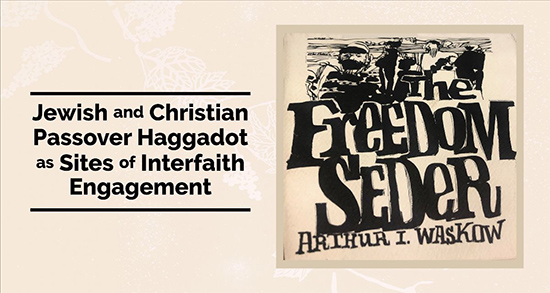
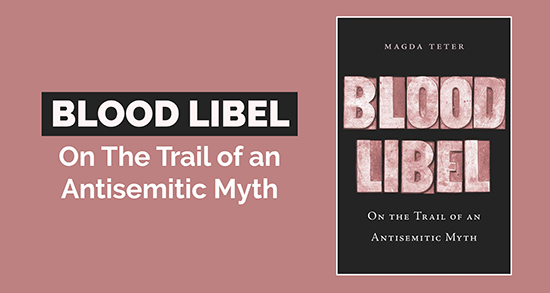
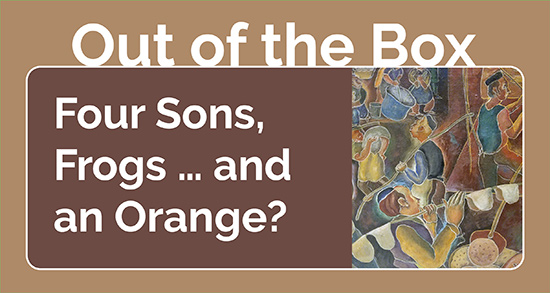
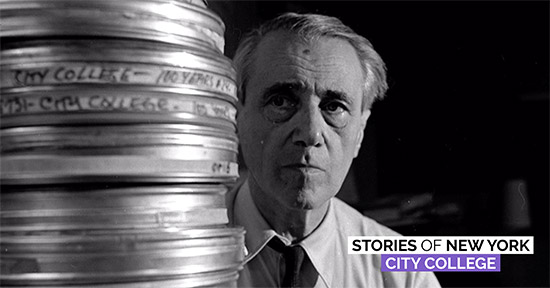
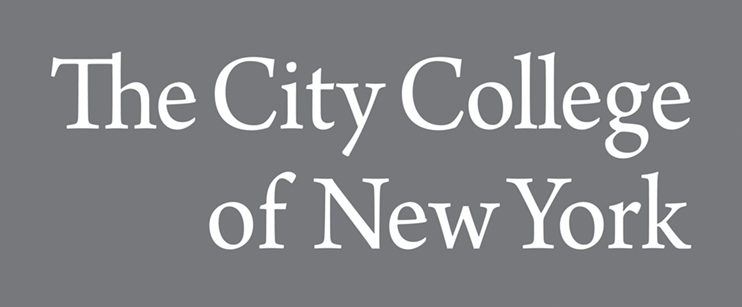
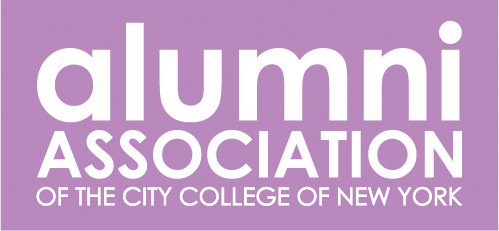
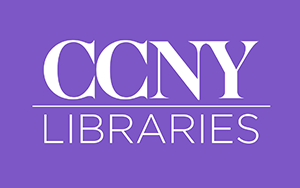
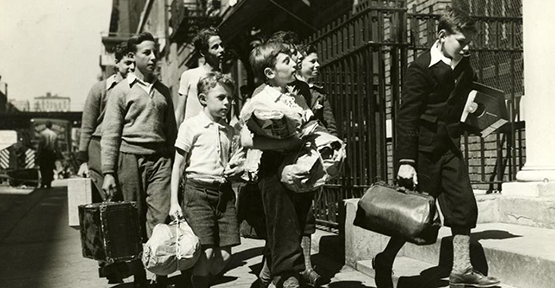
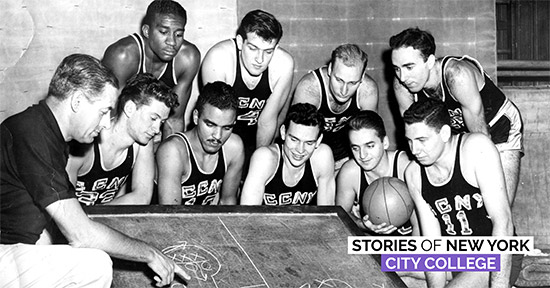
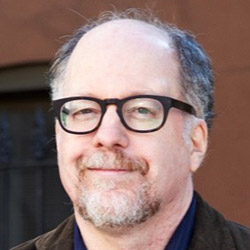 Matthew Goodman is a New York Times bestselling author of four books of nonfiction: The City Game: Triumph, Scandal, and a Legendary Basketball Team (2019); Eighty Days: Nellie Bly and Elizabeth Bisland’s History-Making Race Around the World; The Sun and the Moon: Hoaxers, Showmen, Dueling Journalists, and Lunar Man-Bats in Nineteenth-Century New York; and Jewish Food: The World at Table. Matthew’s books have been Barnes & Noble Discover Great New Writers, Indie Next “Great Reads,” and Borders Original Voices selections, and have been translated into eight languages. His writing has appeared in the Wall Street Journal, USA Today, The American Scholar, the Harvard Review, Salon, the Forward, and many other publications. He lives in Brooklyn.
Matthew Goodman is a New York Times bestselling author of four books of nonfiction: The City Game: Triumph, Scandal, and a Legendary Basketball Team (2019); Eighty Days: Nellie Bly and Elizabeth Bisland’s History-Making Race Around the World; The Sun and the Moon: Hoaxers, Showmen, Dueling Journalists, and Lunar Man-Bats in Nineteenth-Century New York; and Jewish Food: The World at Table. Matthew’s books have been Barnes & Noble Discover Great New Writers, Indie Next “Great Reads,” and Borders Original Voices selections, and have been translated into eight languages. His writing has appeared in the Wall Street Journal, USA Today, The American Scholar, the Harvard Review, Salon, the Forward, and many other publications. He lives in Brooklyn.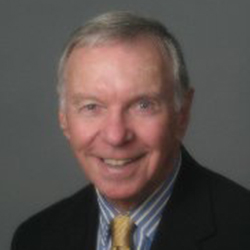 Ron Nadell CCNY ‘51, was born in Brooklyn. He was a star player for the Erasmus Hall High School basketball team and named co-captain of the CCNY Beavers for the 1950-51 season. After graduating, Ron moved to Long Island where he worked in real estate. Married for 63 years, Ron and his wife Rhoda have 3 children, 5 grandchildren and 2 great-grandchildren.
Ron Nadell CCNY ‘51, was born in Brooklyn. He was a star player for the Erasmus Hall High School basketball team and named co-captain of the CCNY Beavers for the 1950-51 season. After graduating, Ron moved to Long Island where he worked in real estate. Married for 63 years, Ron and his wife Rhoda have 3 children, 5 grandchildren and 2 great-grandchildren.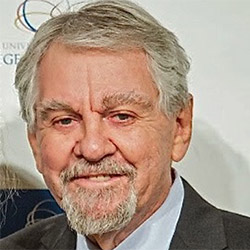 Mort Sheinman CCNY ’54, is Bronx born and raised. After attending Bronx public schools, he entered CCNY in 1950. Mort joined the student newspaper, The Campus, and during his undergraduate years he was a sportswriter, sports editor and managing editor. When he was a freshman, the CCNY basketball team made history by winning the NIT and NCAA championships and he was a sophomore when the “point-shaving” scandal broke. Mort spent his career in journalism writing for a variety of publications including the New York Daily News and Women’s Wear Daily, where he was the long-time managing editor. Mort was also the founding managing editor of W magazine. He is a long-time board member and former president of the Society of the Silurians (now called the Silurians Press Club), and he was inducted into the CCNY Communications Alumni Group Hall of Fame in 2003.
Mort Sheinman CCNY ’54, is Bronx born and raised. After attending Bronx public schools, he entered CCNY in 1950. Mort joined the student newspaper, The Campus, and during his undergraduate years he was a sportswriter, sports editor and managing editor. When he was a freshman, the CCNY basketball team made history by winning the NIT and NCAA championships and he was a sophomore when the “point-shaving” scandal broke. Mort spent his career in journalism writing for a variety of publications including the New York Daily News and Women’s Wear Daily, where he was the long-time managing editor. Mort was also the founding managing editor of W magazine. He is a long-time board member and former president of the Society of the Silurians (now called the Silurians Press Club), and he was inducted into the CCNY Communications Alumni Group Hall of Fame in 2003.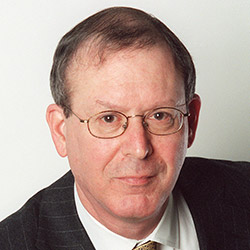 Clyde Haberman (moderator) CCNY '66, first worked at The New York Times while a student at CCNY. Having been editor-in-chief of the college newspaper The Campus, he became CCNY correspondent for the Times. In 1966, he began reporting for The New York Post, ultimately returning to The New York Times in 1977. From 1982 to 1995, Clyde was a foreign correspondent based successively in Tokyo, Rome and Jerusalem. Returning home, he wrote the twice-a-week NYC column from 1995 to 2011 and in 2009, he was part of a Times team that won the Pulitzer Prize for Breaking News, for coverage of the prostitution scandal that led to Governor Eliot Spitzer's resignation. Since 2014 he has written a regular Times column accompanying Retro Report, a series of video documentaries exploring major news stories of the past and their continuing resonance.
Clyde Haberman (moderator) CCNY '66, first worked at The New York Times while a student at CCNY. Having been editor-in-chief of the college newspaper The Campus, he became CCNY correspondent for the Times. In 1966, he began reporting for The New York Post, ultimately returning to The New York Times in 1977. From 1982 to 1995, Clyde was a foreign correspondent based successively in Tokyo, Rome and Jerusalem. Returning home, he wrote the twice-a-week NYC column from 1995 to 2011 and in 2009, he was part of a Times team that won the Pulitzer Prize for Breaking News, for coverage of the prostitution scandal that led to Governor Eliot Spitzer's resignation. Since 2014 he has written a regular Times column accompanying Retro Report, a series of video documentaries exploring major news stories of the past and their continuing resonance.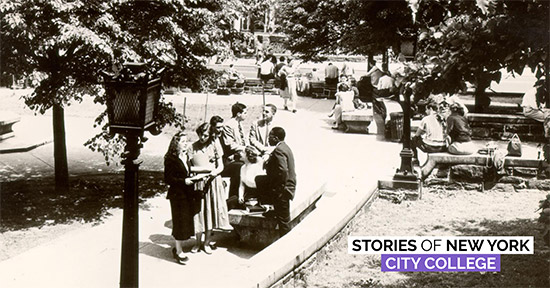
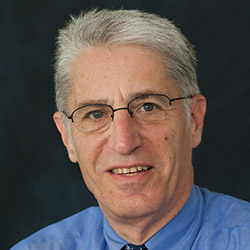 Keynote Speaker Jeffrey S. Gurock, CCNY '71 was a history major and a four year letterman on the college's lacrosse team where he was the recipient of the Abraham Kalman Scholar-Athlete award. In 2015,he was awarded the Townsend Harris Medal from CCNY in recognition of his post-graduate work. Presently the Libby M. Klaperman Professor of Jewish history at Yeshiva University and former chair of the Academic Council of the American Jewish Historical Society, Professor Gurock is the author or editor of 22 books including Jews in Gotham: New York Jews in a Changing City 1920-2010 (NYU Press, 2012) which received the “Book of the Year Award” from the National Jewish Book Council; The Jews of Harlem: The Rise, Decline and Revival of a Jewish Community (NYU Press, 2016), and Parkchester: A Bronx Tale of Race and Ethnicity (NYU Press, 2019).
Keynote Speaker Jeffrey S. Gurock, CCNY '71 was a history major and a four year letterman on the college's lacrosse team where he was the recipient of the Abraham Kalman Scholar-Athlete award. In 2015,he was awarded the Townsend Harris Medal from CCNY in recognition of his post-graduate work. Presently the Libby M. Klaperman Professor of Jewish history at Yeshiva University and former chair of the Academic Council of the American Jewish Historical Society, Professor Gurock is the author or editor of 22 books including Jews in Gotham: New York Jews in a Changing City 1920-2010 (NYU Press, 2012) which received the “Book of the Year Award” from the National Jewish Book Council; The Jews of Harlem: The Rise, Decline and Revival of a Jewish Community (NYU Press, 2016), and Parkchester: A Bronx Tale of Race and Ethnicity (NYU Press, 2019).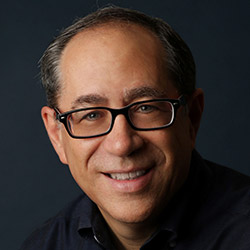 David A. Bell received an AB from Harvard in History and Literature, and an MA and PhD from Princeton in History. The son of Daniel Bell (profiled in Arguing the World) David is a specialist in the history of early modern Europe. He has taught at Yale, Johns Hopkins (where he also served as Dean of Faculty), and since 2010 has held the Lapidus chair in the History Department at Princeton. Among his awards and fellowships are a Guggenheim, and a fellowship at the Cullman Center at the New York Public Library. He is the author of six books, including The Cult of the Nation in France and The First Total War. In 2020, Farrar, Straus and Giroux will publish his latest book, Men on Horseback: The Power of Charisma in the Age of Revolution. He is a regular contributor to The Nation and The New York Review of Books.
David A. Bell received an AB from Harvard in History and Literature, and an MA and PhD from Princeton in History. The son of Daniel Bell (profiled in Arguing the World) David is a specialist in the history of early modern Europe. He has taught at Yale, Johns Hopkins (where he also served as Dean of Faculty), and since 2010 has held the Lapidus chair in the History Department at Princeton. Among his awards and fellowships are a Guggenheim, and a fellowship at the Cullman Center at the New York Public Library. He is the author of six books, including The Cult of the Nation in France and The First Total War. In 2020, Farrar, Straus and Giroux will publish his latest book, Men on Horseback: The Power of Charisma in the Age of Revolution. He is a regular contributor to The Nation and The New York Review of Books.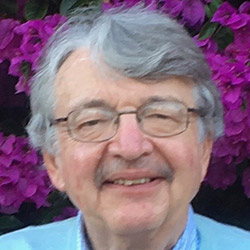 Joseph Berger, CCNY '66, a former reporter for The Campus, was a New York Times reporter, columnist, and editor for over 30 years, writing about education, religion, New York City, Israel and the Middle East. For the previous 14 years he had been a reporter for the New York Post and Newsday. In 2011, Joe was honored with the Peter Kihss Award for a distinguished career given by the Society of Silurians, the city’s oldest press club. Retired from the Times since 2014, Joe is now a contributing writer and teaches two urban affairs courses at the City University of New York’s Macaulay Honors College. Joe is the author of four books, including his memoir, Displaced Persons: Growing Up American after the Holocaust. Called an "extraordinary memoir" by New York Times, it was named a Times notable book of the year in 2001. His next book, a biography of Elie Wiesel will be published by Yale University Press in 2020.
Joseph Berger, CCNY '66, a former reporter for The Campus, was a New York Times reporter, columnist, and editor for over 30 years, writing about education, religion, New York City, Israel and the Middle East. For the previous 14 years he had been a reporter for the New York Post and Newsday. In 2011, Joe was honored with the Peter Kihss Award for a distinguished career given by the Society of Silurians, the city’s oldest press club. Retired from the Times since 2014, Joe is now a contributing writer and teaches two urban affairs courses at the City University of New York’s Macaulay Honors College. Joe is the author of four books, including his memoir, Displaced Persons: Growing Up American after the Holocaust. Called an "extraordinary memoir" by New York Times, it was named a Times notable book of the year in 2001. His next book, a biography of Elie Wiesel will be published by Yale University Press in 2020. 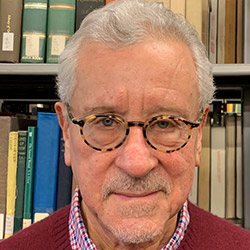 Ralph Blumenthal, CCNY '63 was Editor-in-Chief of The Campus and a stringer for The New York Times at City College where he majored in English. After graduation, he attended the Columbia University Graduate School of Journalism ('64) and went on to the Times where he worked for the next 45 years. Over the course of his career, Ralph was a metro reporter, foreign correspondent, investigative reporter, crime writer, culture reporter and Southwest Bureau Chief based in Houston. He was also on the metro team that won a Pulitzer Prize for spot news reporting of the 1992 terrorist truck bombing of the World Trade Center. After retiring from The New York Times in 2009, Ralph was named a Distinguished Lecturer at Baruch College where he taught journalism and currently supervises historic collections in the Library Archives. He is the author of five non-fiction books, and a sixth, about a Harvard professor who studied encounters with UFOs and aliens, is scheduled for publication in 2021.
Ralph Blumenthal, CCNY '63 was Editor-in-Chief of The Campus and a stringer for The New York Times at City College where he majored in English. After graduation, he attended the Columbia University Graduate School of Journalism ('64) and went on to the Times where he worked for the next 45 years. Over the course of his career, Ralph was a metro reporter, foreign correspondent, investigative reporter, crime writer, culture reporter and Southwest Bureau Chief based in Houston. He was also on the metro team that won a Pulitzer Prize for spot news reporting of the 1992 terrorist truck bombing of the World Trade Center. After retiring from The New York Times in 2009, Ralph was named a Distinguished Lecturer at Baruch College where he taught journalism and currently supervises historic collections in the Library Archives. He is the author of five non-fiction books, and a sixth, about a Harvard professor who studied encounters with UFOs and aliens, is scheduled for publication in 2021.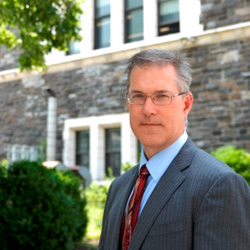 Vincent Boudreau was appointed president of The City College of New York in December 2017. Prior to becoming president, he has served in many positions at City College including as founding dean and director of the
Vincent Boudreau was appointed president of The City College of New York in December 2017. Prior to becoming president, he has served in many positions at City College including as founding dean and director of the 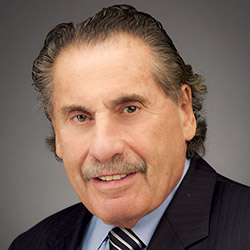 Sid Davidoff, CCNY ’60, grew up in Queens and attended Baruch College, also known as CCNY “downtown.” A member of the City College wrestling team, he was active in student government and graduated with a degree in public administration. Sid earned his J.D. from New York University in 1963 and was administrative assistant to New York Mayor John V. Lindsay for seven years. Recognized as one of New York’s best known attorneys in special City and State agency work, Sid is currently Chair of the Administrative Law and Government Relations groups at Davidoff Hutcher & Citron LLP. Among his many accomplishments, Sid was a Chubb Fellow at Yale University, a lecturer to the special Root-Tilden students at New York University School of Law, and also played a divorce lawyer on an episode of The Sopranos.
Sid Davidoff, CCNY ’60, grew up in Queens and attended Baruch College, also known as CCNY “downtown.” A member of the City College wrestling team, he was active in student government and graduated with a degree in public administration. Sid earned his J.D. from New York University in 1963 and was administrative assistant to New York Mayor John V. Lindsay for seven years. Recognized as one of New York’s best known attorneys in special City and State agency work, Sid is currently Chair of the Administrative Law and Government Relations groups at Davidoff Hutcher & Citron LLP. Among his many accomplishments, Sid was a Chubb Fellow at Yale University, a lecturer to the special Root-Tilden students at New York University School of Law, and also played a divorce lawyer on an episode of The Sopranos.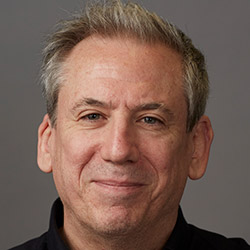 Joseph Dorman is an award-winning filmmaker, writer, and the founder of Riverside Films. He wrote and directed the critically acclaimed documentary, Arguing the World about the controversial sixty-year political journey of the eminent political writers and thinkers, Daniel Bell, Irving Howe, Irving Kristol and Nathan Glazer. Described by The New York Times as “enthralling… one of the deepest portraits of… of ideas ever filmed,” the film won a George Foster Peabody Award for excellence and was short-listed for the Academy Awards. Joseph also directed Sholem Aleichem: Laughing in the Darkness (2011), Colliding Dreams (2016) about the controversial history of Zionism, and co-directed Moynihan, a documentary about the late Senator Daniel Patrick Moynihan’s lifelong fight against poverty in America. A writer for The New York Times Book Review and other publications, Joseph is also the author of Arguing the World: The New York Intellectuals in their Own Words (2001) and co-editor of the forthcoming When Ideas Mattered, The Nathan Glazer Reader.
Joseph Dorman is an award-winning filmmaker, writer, and the founder of Riverside Films. He wrote and directed the critically acclaimed documentary, Arguing the World about the controversial sixty-year political journey of the eminent political writers and thinkers, Daniel Bell, Irving Howe, Irving Kristol and Nathan Glazer. Described by The New York Times as “enthralling… one of the deepest portraits of… of ideas ever filmed,” the film won a George Foster Peabody Award for excellence and was short-listed for the Academy Awards. Joseph also directed Sholem Aleichem: Laughing in the Darkness (2011), Colliding Dreams (2016) about the controversial history of Zionism, and co-directed Moynihan, a documentary about the late Senator Daniel Patrick Moynihan’s lifelong fight against poverty in America. A writer for The New York Times Book Review and other publications, Joseph is also the author of Arguing the World: The New York Intellectuals in their Own Words (2001) and co-editor of the forthcoming When Ideas Mattered, The Nathan Glazer Reader. 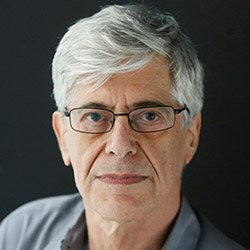 Barry Gewen, who has a BA from the University of Pennsylvania and a PhD from Harvard, has been an editor at The New York Times Book Review for over 30 years. He has written for a variety of publications, including The Times, The New Republic, Dissent, The National Interest and The American Conservative. His first book, The Inevitability of Tragedy: Henry Kissinger and His World, will be published by Norton this spring.
Barry Gewen, who has a BA from the University of Pennsylvania and a PhD from Harvard, has been an editor at The New York Times Book Review for over 30 years. He has written for a variety of publications, including The Times, The New Republic, Dissent, The National Interest and The American Conservative. His first book, The Inevitability of Tragedy: Henry Kissinger and His World, will be published by Norton this spring. Vivian Gornick, CCNY '57 is a renowned memoirist, essayist, and biographer. Born in the Bronx, she received her BA from City College and her MA from NYU in 1960. After teaching English at the State University of New York at Stony Brook in 1966–1967 and at Hunter College in 1967–1968, Vivian worked as a reporter for The Village Voice from 1969 to 1977 where she wrote prolifically about feminism and the women's movement. She is the author of twelve books including Emma Goldman: Revolution as a Way of Life (2013), Fierce Attachments (1987), The Solitude of Self: Thinking About Elizabeth Cady Stanton (2005), The Men in My Life (2008), and The Odd Woman in the City (2015). The New York Times recently selected Fierce Attachments as the "#1 Best Memoir of the Past 50 Years. Vivian lives in New York City.
Vivian Gornick, CCNY '57 is a renowned memoirist, essayist, and biographer. Born in the Bronx, she received her BA from City College and her MA from NYU in 1960. After teaching English at the State University of New York at Stony Brook in 1966–1967 and at Hunter College in 1967–1968, Vivian worked as a reporter for The Village Voice from 1969 to 1977 where she wrote prolifically about feminism and the women's movement. She is the author of twelve books including Emma Goldman: Revolution as a Way of Life (2013), Fierce Attachments (1987), The Solitude of Self: Thinking About Elizabeth Cady Stanton (2005), The Men in My Life (2008), and The Odd Woman in the City (2015). The New York Times recently selected Fierce Attachments as the "#1 Best Memoir of the Past 50 Years. Vivian lives in New York City.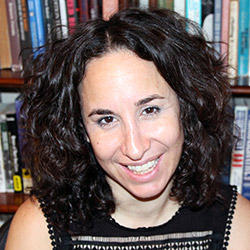 Ronnie Grinberg is an Assistant Professor of History at the University of Oklahoma, and a core faculty member of OU’s Schusterman Center for Judaic and Israel Studies. She is currently completing a book manuscript on the New York intellectuals tentatively titled, Write Like a Man: Jewish Masculinity and the New York Intellectuals, under contract with Princeton University Press. Dr. Grinberg is a member of the Academic Council of the American Jewish Historical Society and contributes to the Society of U.S. Intellectual History, among other professional organizations. She received her doctorate in American history from Northwestern University and a Bachelor of Arts from Barnard College, Columbia University.
Ronnie Grinberg is an Assistant Professor of History at the University of Oklahoma, and a core faculty member of OU’s Schusterman Center for Judaic and Israel Studies. She is currently completing a book manuscript on the New York intellectuals tentatively titled, Write Like a Man: Jewish Masculinity and the New York Intellectuals, under contract with Princeton University Press. Dr. Grinberg is a member of the Academic Council of the American Jewish Historical Society and contributes to the Society of U.S. Intellectual History, among other professional organizations. She received her doctorate in American history from Northwestern University and a Bachelor of Arts from Barnard College, Columbia University. 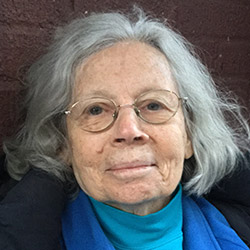 Credit: Linda Eber
Credit: Linda Eber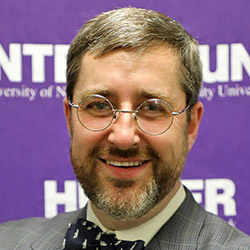 Lev Sviridov, CCNY ’05 immigrated to the United States as a child from the former Soviet Union. He studied chemistry, mathematics, physics, and pottery at The City College of New York and also served in student government where he was elected President. Following his graduation, Lev attended the University of Oxford and completed his D.Phil. in Inorganic Chemistry as a Rhodes' Scholar. He serves on the boards of The Foundation for City College, Concord Consortium, and Human Rights First. Currently, he is the Director of the Macaulay Honors College at Hunter College of CUNY.
Lev Sviridov, CCNY ’05 immigrated to the United States as a child from the former Soviet Union. He studied chemistry, mathematics, physics, and pottery at The City College of New York and also served in student government where he was elected President. Following his graduation, Lev attended the University of Oxford and completed his D.Phil. in Inorganic Chemistry as a Rhodes' Scholar. He serves on the boards of The Foundation for City College, Concord Consortium, and Human Rights First. Currently, he is the Director of the Macaulay Honors College at Hunter College of CUNY.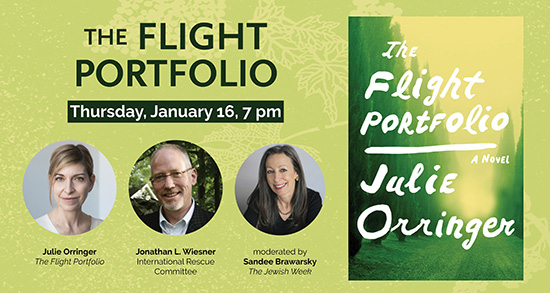
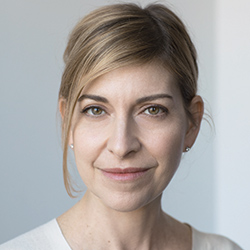 Julie Orringer is the author of the novel The Invisible Bridge and the award-winning short story collection How to Breathe Underwater, which was a New York Times Notable Book. She is the winner of The Paris Review’s Plimpton Prize for Fiction and the recipient of fellowships from the National Endowment for the Arts, Stanford University, and the Dorothy and Lewis B. Cullman Center for Scholars and Writers at the New York Public Library. She lives in Brooklyn.
Julie Orringer is the author of the novel The Invisible Bridge and the award-winning short story collection How to Breathe Underwater, which was a New York Times Notable Book. She is the winner of The Paris Review’s Plimpton Prize for Fiction and the recipient of fellowships from the National Endowment for the Arts, Stanford University, and the Dorothy and Lewis B. Cullman Center for Scholars and Writers at the New York Public Library. She lives in Brooklyn.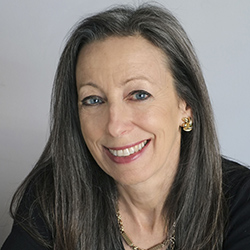 Sandee Brawarsky, an award-winning journalist and editor, is the culture editor of The Jewish Week and writes primarily about books, theatre, art and museums, television, special events, and personalities from all walks of life. She also curates and moderates literary events around New York City. The author of several books, most recently 212 Views of Central Park: Experiencing New York’s Jewel from Every Angle (with photographer Mick Hales), her essays and articles have appeared in The New York Times, Los Angeles Times, The Lancet, Hadassah, the Jerusalem Post, and other publications. She is the co-editor of Two Jews, Three Opinions: A Collection of Twentieth Century American Jewish Quotations (with Deborah Mark). For The New York Times, she has written about the neighborhoods of New York City, ethnic festivals and events, historic sites and walking in the city at all hours, and about weddings in the “Vows” column. She lives in Teaneck, New Jersey with her husband, Barry Lichtenberg and their three children.
Sandee Brawarsky, an award-winning journalist and editor, is the culture editor of The Jewish Week and writes primarily about books, theatre, art and museums, television, special events, and personalities from all walks of life. She also curates and moderates literary events around New York City. The author of several books, most recently 212 Views of Central Park: Experiencing New York’s Jewel from Every Angle (with photographer Mick Hales), her essays and articles have appeared in The New York Times, Los Angeles Times, The Lancet, Hadassah, the Jerusalem Post, and other publications. She is the co-editor of Two Jews, Three Opinions: A Collection of Twentieth Century American Jewish Quotations (with Deborah Mark). For The New York Times, she has written about the neighborhoods of New York City, ethnic festivals and events, historic sites and walking in the city at all hours, and about weddings in the “Vows” column. She lives in Teaneck, New Jersey with her husband, Barry Lichtenberg and their three children.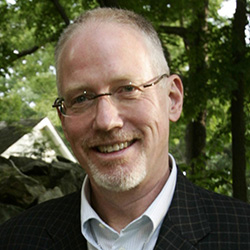 Jonathan Weisner has served in a leadership capacity on several environmental and humanitarian NFP/NGO boards over the past 22 year and is currently Chair of the NY Advisory Board of the Trust for Public Land (TPL). He has been on the Board of the International Rescue Committee (IRC) since 1995 where he was Co-Chair of the Board and is now Chairman Emeritus. As a Board member, he has visited many of the programs and comments that he is in awe of the refugees that IRC serves because of their courage and optimism. “Despite being driven from their homes, refugees want nothing more than the chance to rebuild their lives.” As a CEO and owner of a privately held apparel company, he has created a "mission" to adopt sustainable practices and achieved B Corp certification.
Jonathan Weisner has served in a leadership capacity on several environmental and humanitarian NFP/NGO boards over the past 22 year and is currently Chair of the NY Advisory Board of the Trust for Public Land (TPL). He has been on the Board of the International Rescue Committee (IRC) since 1995 where he was Co-Chair of the Board and is now Chairman Emeritus. As a Board member, he has visited many of the programs and comments that he is in awe of the refugees that IRC serves because of their courage and optimism. “Despite being driven from their homes, refugees want nothing more than the chance to rebuild their lives.” As a CEO and owner of a privately held apparel company, he has created a "mission" to adopt sustainable practices and achieved B Corp certification.